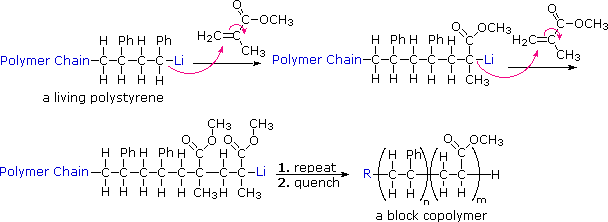Checking Out the Varied Applications and Advantages of Polymers in Different Industries
Polymers, with their varied variety of buildings and capabilities, have come to be vital in various sectors, each enjoying one-of-a-kind benefits from their application. From enhancing security and performance in the vehicle field to reinventing clinical devices in the healthcare market, polymers play a crucial function.
Automotive Sector Applications
Polymers play a pivotal function in improving the efficiency and durability of various elements within the vehicle field. One noticeable use of polymers in the automotive market is in the manufacturing of light-weight parts.

Medical Care Industry Advantages
In different healthcare applications, the advantages of utilizing polymers are widely recognized for their diverse variety of helpful properties. Polymers play a vital function in the medical care sector due to their flexibility, biocompatibility, and cost-effectiveness. One of the key advantages of polymers in healthcare is their capacity to be tailored to particular needs, such as flexibility, resilience, and biodegradability, making them optimal for a variety of medical applications.
Polymer-based materials are extensively made use of in clinical gadgets, such as catheters, implants, prosthetics, and drug delivery systems, due to their biocompatibility and ability to mimic all-natural cells. These materials can reduce the threat of allergies or denials, boosting client safety and end results. In addition, polymers are lightweight, making them suitable for wearable clinical devices and ensuring person comfort.
In addition, polymers allow the growth of ingenious therapy methods, such as hydrogels for cells design and nanocomposites for targeted drug distribution. Their ease of processing and sanitation makes them important for keeping high standards of hygiene in medical care settings. In general, the varied advantages of polymers contribute dramatically to advancements in medical modern technology and individual treatment.
Ecological Benefits of Polymers

Moreover, polymers can add to power financial savings as a result of their lightweight nature. In industries such as transportation, lightweight polymer materials can help decrease fuel usage and greenhouse view website gas discharges. top article Furthermore, polymers can allow the advancement of energy-efficient items such as insulation products that enhance energy conservation in buildings.
Furthermore, polymers play a vital duty in lowering water air pollution. For instance, the usage of polymer-based filtering systems can properly eliminate contaminants and contaminants from wastewater, safeguarding water resources and ecosystems. Generally, the environmental benefits of polymers make them valuable properties in advertising sustainability and environmentally friendly techniques across numerous markets.
Polymers in Electronics and Technology
Taking into consideration the boosting demand for cutting-edge and lasting services in modern markets, the integration of innovative polymer modern technologies in the realm of electronic devices and innovation has arised as a critical approach for driving effectiveness and performance. Polymers have actually revolutionized the electronic devices industry by making it possible for the production of lighter, extra versatile, and durable digital devices. From smart devices to medical view it gadgets, polymers play an important role in improving product style and performance.
One substantial benefit of polymers in electronic devices is their insulating residential properties, which assist safeguard fragile electronic elements from ecological elements and electric disturbance. Additionally, polymers are necessary in the development of versatile display screens, wearable technology, and printed electronic devices, offering unlimited opportunities for producing clever and interconnected devices.
Additionally, making use of polymers in digital product packaging has actually resulted in improvements in miniaturization and thermal monitoring, improving the general performance and dependability of digital systems. As modern technology remains to develop, the adaptability and flexibility of polymers will certainly drive additionally technology in the electronic devices sector, forming the future of technology.
Role of Polymers in Construction and Infrastructure
The combination of sophisticated polymer materials in building and facilities tasks has actually reinvented the means frameworks are created and constructed in modern-day times. Polymers use many benefits in the building market because of their flexibility, sturdiness, and cost-effectiveness. One crucial function of polymers in building is their use in coatings and sealants, giving defense versus environmental elements such as moisture, UV radiation, and deterioration. In addition, polymers are used in the manufacturing of lightweight and high-strength composite products, improving the structural honesty of structures while minimizing overall weight.
In addition, polymers play a vital role in sustainable building techniques by making it possible for the development of energy-efficient structures. Protecting products made from polymers assist manage interior temperatures, decreasing the requirement for home heating and cooling down systems and inevitably decreasing power consumption - Polymers.
Conclusion
Finally, polymers play a critical duty in various industries such as automobile, health care, environmental, electronics, and building. Their flexible residential or commercial properties make them important in producing ingenious services and products. From improving fuel efficiency in cars to enhancing medical devices, polymers offer numerous benefits. In addition, their effect on reducing waste and promoting sustainability highlights their importance in modern-day applications. The extensive use of polymers demonstrates their substantial payment to progressing innovation and improving lifestyle.